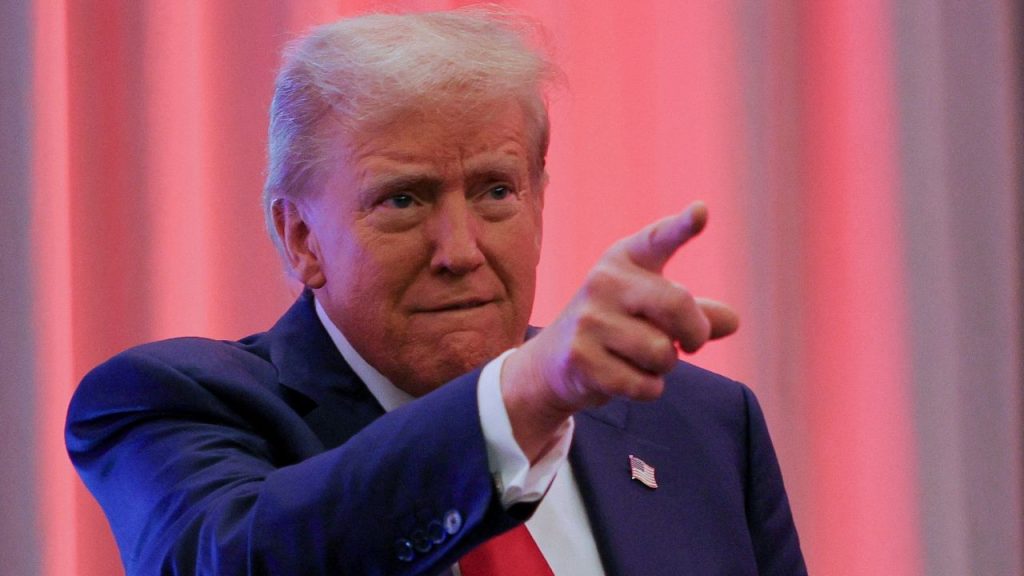A prominent tech industry analyst has issued a stark warning about the potential fallout from the ongoing U.S.-China tariff conflict initiated under former President Donald Trump. Dan Ives, the Global Head of Technology Research at Wedbush Securities, has cautioned that the trade war could dramatically inflate iPhone prices—potentially tripling them—and impose severe costs on both multinational tech firms and global consumers, including those in emerging markets such as Nigeria.
Apple’s $3,500 iPhone? The Cost of Domestic Manufacturing
Speaking in an interview with CNN, Ives underscored the economic infeasibility of relocating Apple’s highly complex supply chain to the United States. He painted a grim picture of what it would cost to build iPhones entirely on American soil, estimating the retail price could skyrocket to as much as $3,500—over three times the current cost of around $1,000.
“You build that supply chain in the U.S. with fabrication plants in West Virginia or New Jersey, and you’re looking at $3,500 iPhones,” Ives said. His comments point to the intricacy and specialization of the supply networks Apple has relied on for decades, particularly in Asia, where countries like China, Taiwan, and South Korea dominate chip production and device assembly.
Currently, nearly 90% of iPhones are assembled in China, with critical components sourced from South Korea and Taiwan. The notion of uprooting this vast network is not only costly—it is time-consuming. Ives estimates it would take Apple approximately $30 billion and at least three years just to repatriate 10% of its supply chain to the U.S.
Tariffs, Inflation, and the Tech Industry’s Ticking Clock
Trump’s tariffs, now in full implementation, are already increasing the cost of a wide range of imported goods—from electronics and apparel to household appliances. The administration defends these measures as necessary steps to revive U.S. manufacturing, but industry experts argue that the economic burden will ultimately fall on American consumers and companies that depend on international production.
Apple finds itself particularly exposed to the brunt of these tariffs. Its heavy reliance on Chinese manufacturing has made it one of the tech giants most vulnerable to trade disruptions. Since Trump’s inauguration, Apple’s stock has fallen by roughly 25%, as investors fret over rising costs, threatened profit margins, and uncertain consumer demand.
“This is economic Armageddon for the tech industry. No company is more caught up in this Category 5 tariff storm than Apple,” Ives remarked. His statement underscores the sweeping scale of the disruption, warning that Apple could face both reduced profitability and damage to its brand image if consumers balk at higher prices.
Shifting Focus: Apple’s Manufacturing Alternatives
In response to escalating tensions with China and rising tariffs, Apple has started exploring alternative production hubs. In 2024, the company announced a substantial $500 billion investment into its U.S. operations. However, the full reshoring of manufacturing remains unlikely given the sheer scale and complexity involved.
India and Brazil have emerged as promising, albeit imperfect, alternatives. India, while still facing a 26% tariff on U.S. imports, offers a relatively more stable production environment than the increasingly unpredictable U.S.-China trade route. Brazil, with a lower 10% tariff rate, has also attracted interest but lacks the industrial scale needed to match China’s output.
Though these regions may help Apple diversify risk, neither India nor Brazil can fully replace China’s robust manufacturing infrastructure in the short term. As a result, global consumers are likely to bear the brunt of the cost increases for the foreseeable future.
Nigeria’s Vulnerable Position in the Global Supply Chain
While Nigeria does not manufacture iPhones or serve as a direct player in the global tech supply chain, the country—and many other emerging markets—stands to be significantly impacted by the ripple effects of the tariff war. Nigeria relies heavily on imported electronic goods, with smartphones like the iPhone ranking high among tech products brought in for local consumption.
Any substantial rise in iPhone production costs will translate into steeper retail prices in Nigeria, where the average consumer already struggles with weak purchasing power and currency volatility. A tripling of iPhone prices abroad could render Apple devices prohibitively expensive for Nigerian buyers, pushing them toward cheaper alternatives and significantly shrinking Apple’s market share in the region.
For local telecommunications providers and retailers that bundle iPhones with service plans, these price hikes could result in fewer sales, reduced customer acquisition, and slimmer profit margins. Many telcos rely on iPhone sales to attract premium users, and a spike in prices could derail these business strategies.
Broader Economic Impact and Consumer Shifts
The broader economic impact of Apple’s supply chain troubles could affect more than just smartphone pricing. Nigeria’s tech ecosystem, which is rapidly growing with increased smartphone penetration, relies on a steady influx of affordable devices to power everything from fintech to e-commerce. Rising costs for devices could slow digital inclusion and widen the tech accessibility gap in rural and low-income areas.
Moreover, Nigerian consumers may increasingly turn to budget brands like Tecno, Infinix, and Xiaomi—companies that offer affordable smartphones with decent performance. These Chinese manufacturers could seize a greater share of the Nigerian and African smartphone markets as Apple’s flagship devices become out of reach for most buyers.
What Comes Next: Global Pressure and Local Consequences
With U.S. policymakers doubling down on protectionist trade policies, and companies like Apple racing to reconfigure their global supply strategies, emerging economies like Nigeria will remain on the receiving end of the economic shockwaves. Whether it’s higher prices, slower device rollouts, or declining iPhone availability, the effects of the U.S.-China tariff war will be felt far beyond the boardrooms of Silicon Valley.
As Dan Ives notes, the attempt to pull manufacturing back to American soil may come with patriotic rhetoric, but the economic costs—especially for consumers and international markets—are likely to be profound. For Nigerians and others in the global South, the looming question is how to adapt in a tech landscape that is growing more expensive and uncertain by the day.













